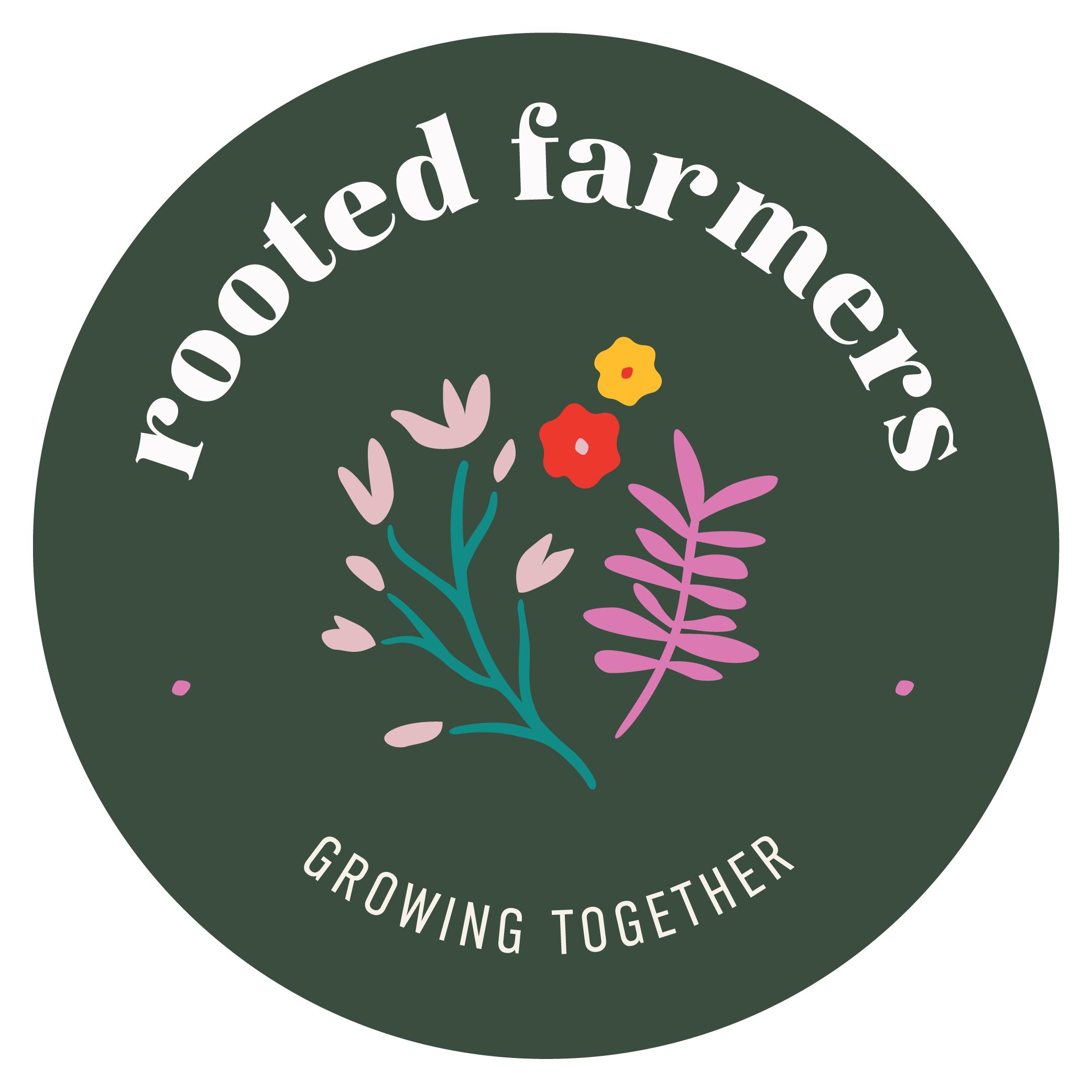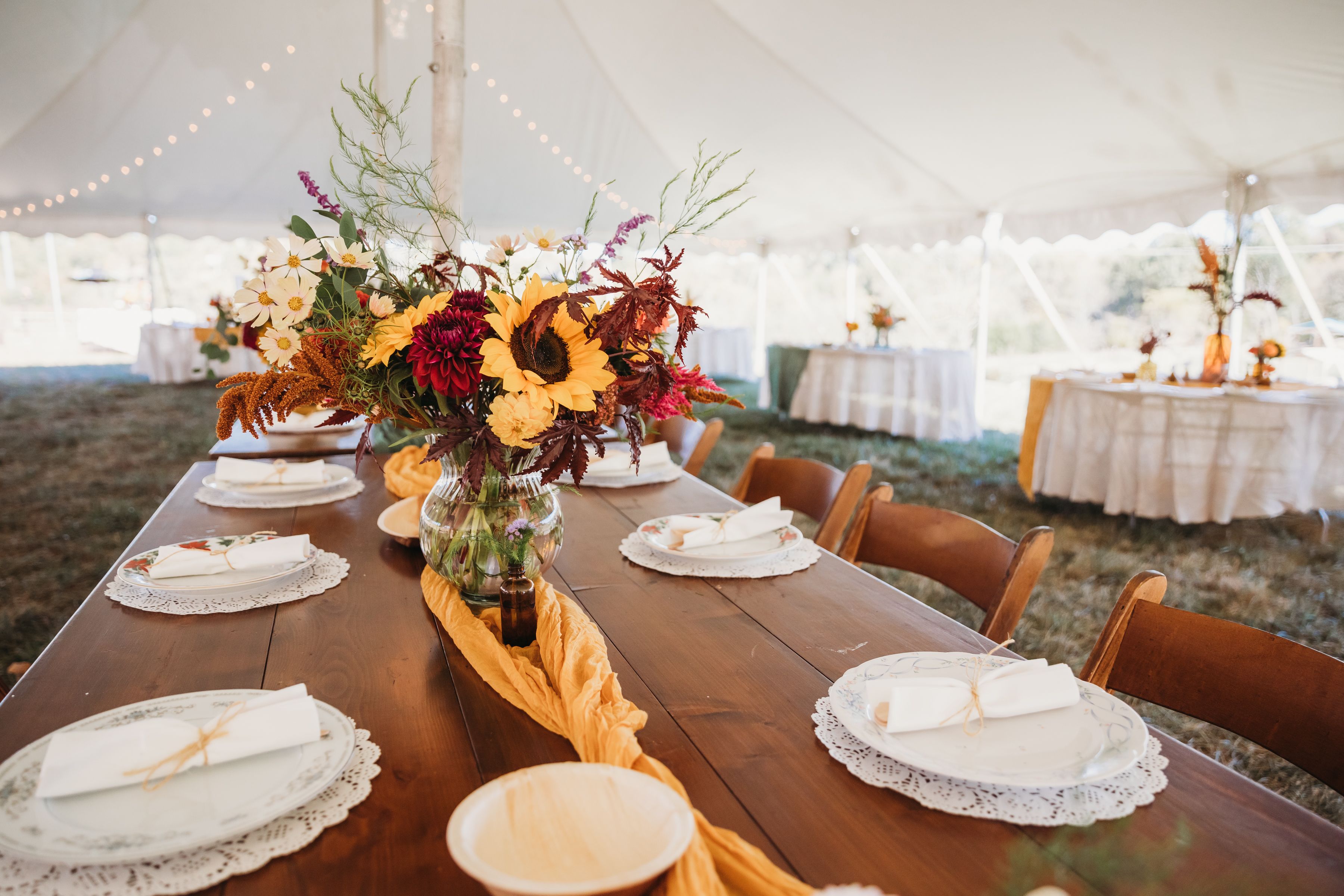
Planning a wedding comes with a lot of decisions, and choosing your flowers is one of the most exciting parts! If you're drawn to the idea of fresh, seasonal blooms and supporting local growers, working with a flower farm is a fantastic option. But how does it work, and what should you expect? Here’s a guide to help you navigate the process and make the most of your locally grown wedding flowers.
1. Know Your Floral Needs
Before reaching out to a farmer, take some time to think about what you need:
- Are you looking for full floral design services, or do you just want buckets of blooms to arrange yourself? If you love arranging flowers and want a hands-on experience, DIY buckets can be a fun and cost-effective option. If you'd rather leave the design to a professional, a full-service florist might be the best choice.
- Do you need specific flowers, or are you open to a seasonal mix? Flower availability is seasonal, so if you are very set on a specific flower—like peonies in May or dahlias in late summer—keep in mind that they will only be available during those months. Being flexible with a seasonal mix will guarantee that you have the best selection of what's available at that time of the year. (Read more: Local Staples: A Substitution Guide for Popular Flowers)
- What is your color palette and overall floral vision? Consider your wedding colors and style—do you want a soft, romantic look with pastels or a bold, vibrant arrangement? Sharing inspirational photos or creating a Pinterest board can help your farmer understand your vision. (Read more: A Seasonal Approach to Color Palettes for DIY events)
Having a clear idea of your needs will help your farmer guide you in the right direction.
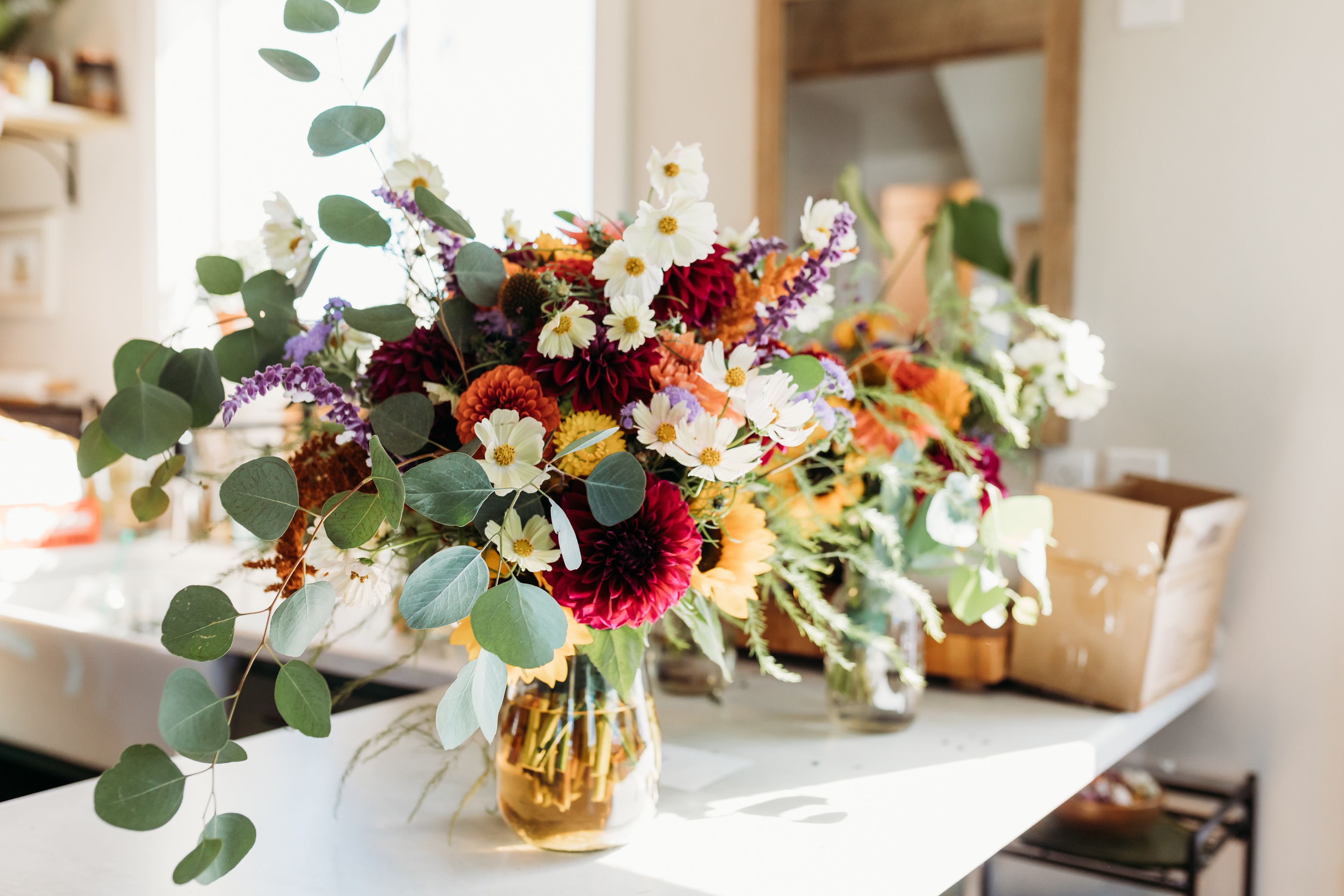
2. Find the Right Flower Farm
Not all flower farmers offer wedding services, so it’s important to find one who aligns with your vision. Here’s where to start:
- Sign up for Rooted Farmers, an online marketplace that connects you to local growers near you.
- Ask local florists—some source from flower farms and may have recommendations.
- Look at social media—many farmers showcase their blooms and wedding offerings on Instagram.
- Check out Collectives — Collectives/hubs are groups of multiple growers that will allow you to access a broader selection of flowers and services while simplifying communication and logistics. Log on to Rooted Farmers to find a hub near you.
3. Communicate Early & Be Flexible
Local flower farms work with nature’s schedule, which means availability will depend on the season. Reach out as early as possible—ideally 6-12 months before your wedding—to discuss your needs.
Be prepared for some flexibility. Unlike traditional wholesalers, local flower farmers can’t guarantee specific blooms far in advance, but they can provide stunning, in-season alternatives that align with your colors and style.
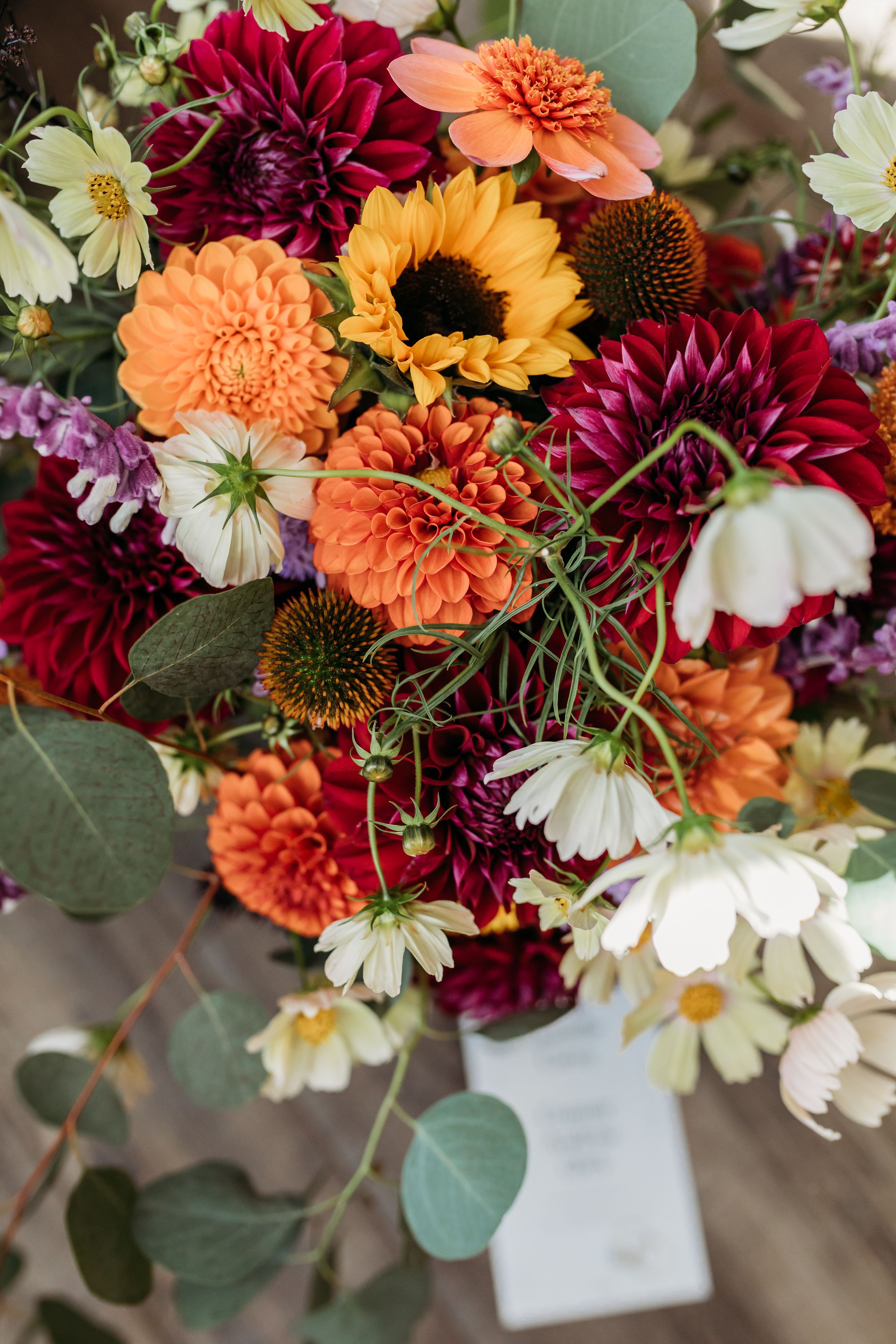
4. Understand Pricing & Offerings
Each farm operates differently, but common options include:
- DIY Buckets – A mix of seasonal blooms for you to arrange.
- À La Carte Design – Bouquets, boutonnieres, and centerpieces made for you, without installation.
- Full-Service Weddings – Some farmers offer full design and installation services.
Flowers can be a costly expense of your wedding, consider your budget so that the farm can offer you options that best fit your price range. Ask about pricing, minimum orders, and whether they offer consultations or farm visits.
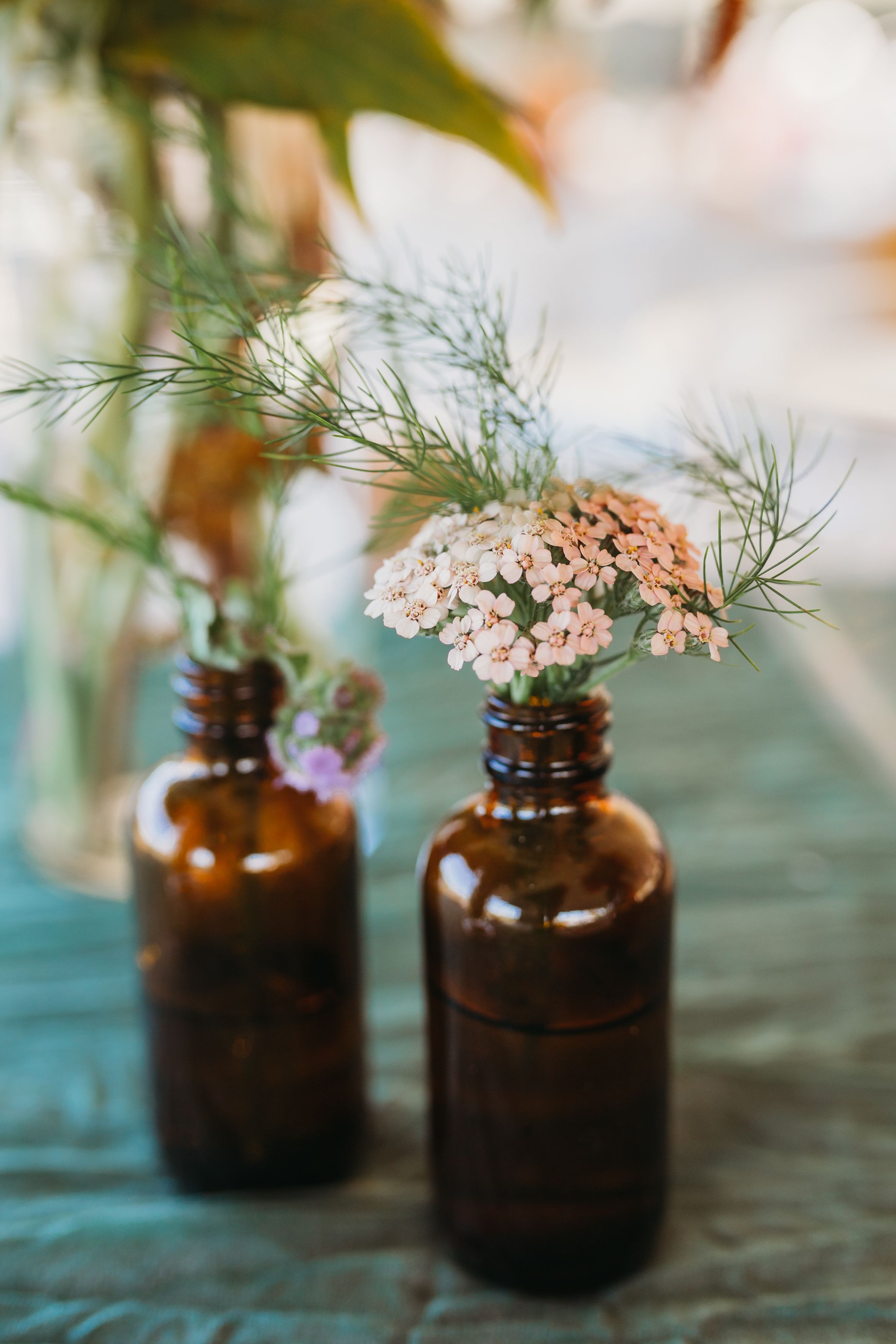
5. Pick Up and Storage Tips
If you’re purchasing DIY flowers, plan for pickup a day or two before your wedding. Bring clean buckets, transport them in a cool vehicle, and store them in a shaded, air-conditioned space until arranging time. Ask the farm if they have any recommendations for processing; some good practices are to recut stems and change out the water daily to ensure your flowers stay fresh and hydrated.
For pre-arranged florals, confirm pickup or delivery details ahead of time to avoid last-minute stress.
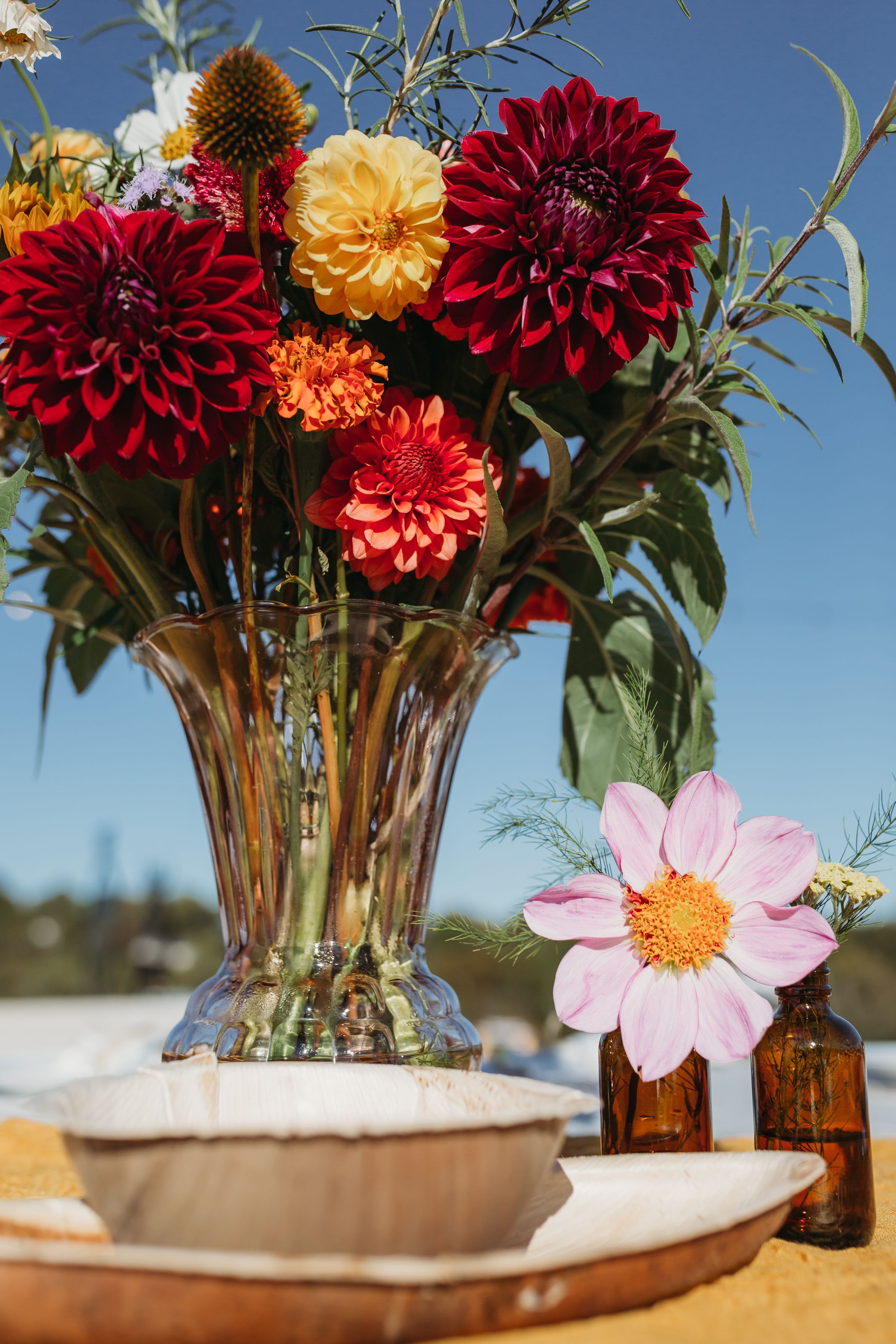
6. Enjoy the Beauty of Local Blooms!
Working with a flower farmer means your wedding flowers will be fresh, unique, and sustainably sourced. Embrace the beauty of seasonal blooms, trust your farmer’s expertise, and enjoy the process of incorporating locally grown flowers into your special day.
Choosing local flowers isn’t just about aesthetics—it’s about supporting small farms, reducing your environmental impact, and celebrating the beauty of what’s in bloom around you. By working closely with a flower farmer, you’ll create a wedding full of fresh, meaningful, and one-of-a-kind floral arrangements.
